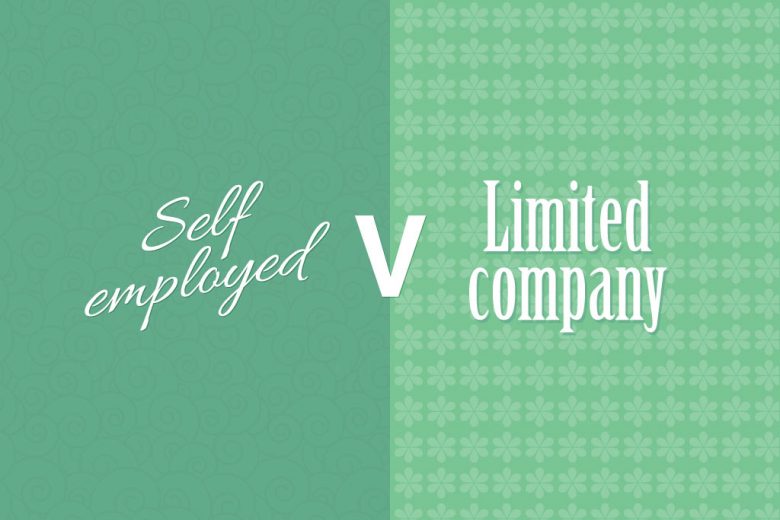Should you start a limited company or be self-employed?
There are many big decisions you need to make when you start a business or go freelance. And one of the most important is what structure your company or freelance will take.
Should you be self-employed or think about setting up a limited company? Ruth Anscombe from Vanilla Online Accountancy helps you weigh up your options.
Self employed vs limited company
So you’ve got a great idea for your new business. You’ve worked out how you’re going to fund getting started, you’ve started thinking about advertising, suppliers, customers and all sorts of other important issues. But should you be self employed or set up a limited company?
There are lots of factors to take into account when making the decision and if you get it wrong it could be quite costly. To help you make the right choice, here are are are some of the main issues you need to consider:
- Image – having a limited company might suggest that your business is bigger than it is and more well established, and you might feel that people will take you more seriously if you trade through a company rather than as an individual.
- Limited liability – as a sole trader or self employed person, you are your business. If you borrow money for work, then it is you personally that owes that money, and if it all goes wrong then you are liable for the businesses debts or you could be sued for problems such as breach of contract. Setting up a company reduces this risk as a company is a separate legal entity, so if the company owes money and can’t repay it, you don’t have to dig into your own pockets. There are a few caveats to this, though – for instance, if you have acted negligently or fraudulently then this won’t be the case.
- Tax savings – a self employed person pays tax and national insurance. A company only pays tax. Therefore you can reduce your overall tax bill by setting up a limited company. However, the reporting requirements are greater for a company, meaning that there is more red tape for you and bigger accountancy bills. We usually find that if you are making a profit of around £15,000 per year or more, you will save overall by using a limited company, but individual circumstances need to be considered.
- Financial flexibility – a limited company can be flexible in that other people can own shares in it (and so receive dividends, their share of the profit) and you can decide when to take money out of the company. If you are likely to be earning more money than your partner, both owning shares in your company can be a good way to reduce your overall tax bill.
- VAT – a common misconception is that limited companies have to be registered for VAT, but that isn’t the case. You need to register for VAT if your relevant turnover is over a threshold – currently £79,000 – regardless of whether you are a sole trader or limited company.
- Partners – if you are setting up your business with someone else, you become a partnership unless you set up a different arrangement. Partners are each self employed, taking a share of the profits. You might find a company is more beneficial or you could consider a limited liability partnership (LLP).
If you decide to set up a company, you will need to choose a name for it that has not already be used by another company. You then need to get it registered with Companies House. Speaking to an accountant before doing that can help you to be sure you make the right decision – many accountants offer a free initial consultation and if you need more support than that, you will probably find they have suggestions which pay for their fee in tax savings.
You may also find that they will set up your company for free if you decide to use their services for your end of year accountancy work.










